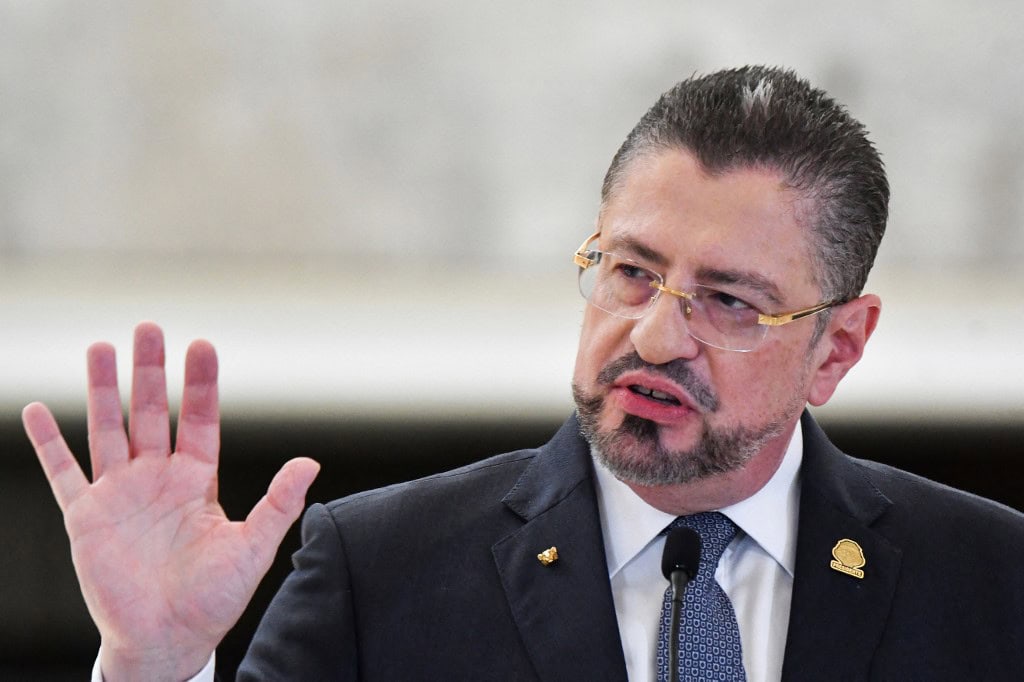Costa Rican President Rodrigo Chaves delivered his third State of the Nation Address to the Legislative Assembly, employing an unconventional approach that blended multimedia presentations with sharp criticism of public institutions and political opponents. The speech, which outlined achievements in security, education, employment, and economic growth, drew polarized reactions, with supporters praising its boldness and critics decrying its omissions and confrontational tone.
Chaves used videos to highlight his administration’s accomplishments, claiming Costa Rica is advancing in critical areas. He emphasized a drop in unemployment to 6.6% and 7% during the moving quarters of July–September and August–November 2024, alongside the arrival of 2.9 million tourists in 2024. He also underscored progress in neglected coastal regions, framing his government as one that “delivers, builds, doesn’t steal, and doesn’t slacken.” However, international tourist arrivals remain below pre-pandemic levels, with a decline since September 2024, a point Chaves did not address.
The president’s 13-page security report touted measures like Operation Sovereignty, which scans all containers at Moín port, and a historic police wage increase in July 2024. Yet, it omitted the record-high homicide rates of 907 in 2023 and 879 in 2024, translating to 17.2 per 100,000 residents. Critics, including opposition lawmakers, highlighted this discrepancy, noting that 41.8% of Costa Ricans in a 2024 survey viewed insecurity as the nation’s top issue, up from 13.3% in 2022.
Education and healthcare received minimal attention. Chaves briefly mentioned cultural initiatives but sidestepped the educational crisis, marked by deficient math and reading comprehension skills in national assessments and chronic underfunding. In healthcare, he glossed over the social security system’s backlog, with 190,076 individuals awaiting surgery as of 2025, facing average wait times of over a year.
Chaves’ rhetoric targeted perceived elites and institutions, accusing them of obstructing progress. He claimed his policies have shifted protests from “the poor” to “the rich,” describing opponents as a privileged “old political caste” unsettled by his reforms. This drew sharp rebuke from Rodrigo Arias, President of the Legislative Assembly, who criticized Chaves for attacking independent institutions, the media, and civil society. Arias argued that the president’s tone undermines governance, pointing to a disconnect between Chaves’ optimistic narrative and the country’s challenges.
Opposition lawmakers disrupted the address with protest signs focusing on gender-based violence, a pressing issue in 2025. Signs read, “Shame on leading the most violent year for women,” and “Women’s lives matter. No more violence!” These reflected public frustration over rising femicides and violence against women, which Chaves did not directly address.
Social media posts echoed the polarized sentiment. One user described Chaves’ tone as “defiant” and lacking self-criticism, while another criticized the administration’s failure to address security, education, and healthcare crises effectively.
Chaves’ address also referenced controversial prison reforms, inspired by El Salvador’s Nayib Bukele, including plans for a new 5,000-inmate facility and restrictions on inmate visits. These measures, announced days before the speech, have sparked hunger strikes and protests, with critics warning of human rights violations.
Chaves’ speech highlighted his style of leadership, mixing bold claims with selective facts. Supporters see him challenging old elites, but critics say he ignores key problems like violence, education, and healthcare, widening rifts before next years elections.






